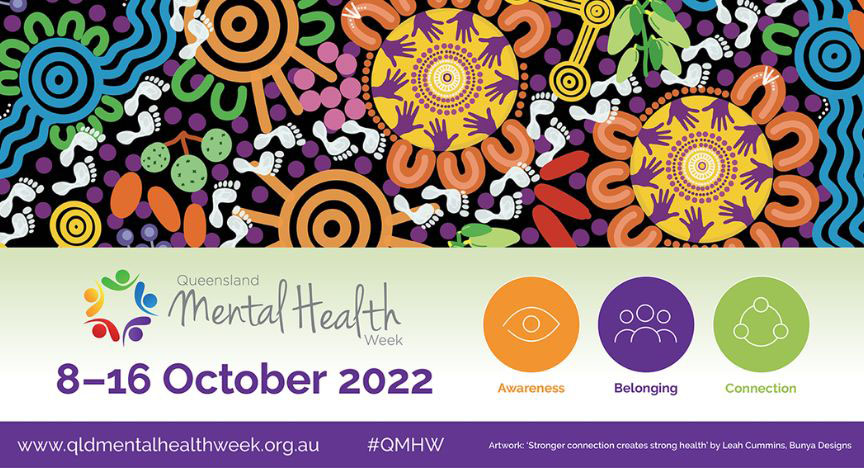
Central West residents are being urged to take the opportunity of this year’s Mental Health Week from 8–16 October to take stock of their mental health and look after others.
“Living and working in rural and remote communities can be stressful at times,’’ Central West Hospital and Health Service Executive Director of Medical Services Dr David Walker said.
“Pressures such as social isolation, financial hardship, lack of employment opportunities, and natural disasters can have a major impact on a person’s mental health and wellbeing, leading to anxiety, depression or other health related issues,’’ he said.
“About half of all Australian’s experience mental illness in their lifetime, and about one in five Australians experience a mental health issue in any one year.
“But the phrase mental health can turn people off, so we really need to ensure the community are engaged and able to have conversations about it.
“Some groups experience much higher rates of mental health issues, including males, Aboriginal and Torres Strait Islander peoples and those living in rural and remote communities.
“Our emotional health is just as important as our physical health, so, it’s vital we strive to care for ourselves both mentally and physically.
Dr Walker said this year’s Mental Health Week was focussed on the three themes of Awareness, Belonging and Connection.
“Awareness refers to learning about mental health and wellbeing, ways to care for yourself and others and how to find help if needed,’’ he said.
“Belonging is all about understanding that no matter how you feel, you are not alone.
“Staying connected is about finding services, support and social networks that foster mentally healthy practices.
“Our mental health service works with people on an ongoing basis to provide psychiatric treatment and support if they have a serious mental illness.
“They coordinate with psychiatrists to assist and or manage medications and other treatments.
“They will also refer people to other services for additional assistance with psycho-social issues as needed.
’’ Dr Walker said Central West Health’s mental health team dealt with an average of 30 referrals a month.
“This has remained steady over the past several years but this year we have seen a significant increase in acute mental health referrals that require admission to a tertiary mental health facility.
“Normally, we would see about five such acute cases a year on average but this year so far, we have already recorded 10 such cases.
’’ Dr Walker said having positive mental wellbeing had many benefits, one of which was building long-term resilience which could act as a buffer against the risk of mental illness.
A good start is to use the six building blocks of mental wellbeing, as detailed on the Queensland Government’s “Dear Mind” website:
- Get healthy: Be active, eat well and get enough sleep.
- Keep learning: Challenge your mind and seek out new things.
- Show kindness: Give back, show gratitude, and bring joy to others’ lives.
- Connect more: Develop relationships, stay connected and care for each other. Take notice: Be mindful.
- Stay in the moment.
- Experience the world around you.
- Embrace nature: Step outside, connect with the natural world and take care of the planet.
“Engaging with each of these building blocks can help build positive mental wellbeing and resilience, which is especially important around this time of year as we start counting down to the Christmas–New Year period,’’ Dr Walker said.
“While many of us look forward to the festive season, this time of year may be a source of stress, anxiety, sadness, or loneliness for some people, so it pays to start building mental health resilience earlier in the year.
“Remember, at any time of the year, if you’re feeling overwhelmed, lonely or anxious, reach out and talk to someone.
“You could reach out to a supportive relative or friend by sending a text or message on social media, inviting someone over for a coffee or making a phone call.
Some useful links and contacts:
- For mental health support 24/7 phone 1300 MH CALL (1300 64 2255).
- Dear Mind
- Lifeline on 13 11 14.
- Kids Help Line 1800 551 800.
- Beyond Blue 1300 22 46 36 and:
- Or Queensland Government "Caring for somebody with a mental illness" information
- If you are concerned about your own or someone else’s alcohol or other drug use, call Alcohol and Drug Information Service (ADIS), a free, 24/7 anonymous and confidential telephone counselling and information service on 1800 177 833.